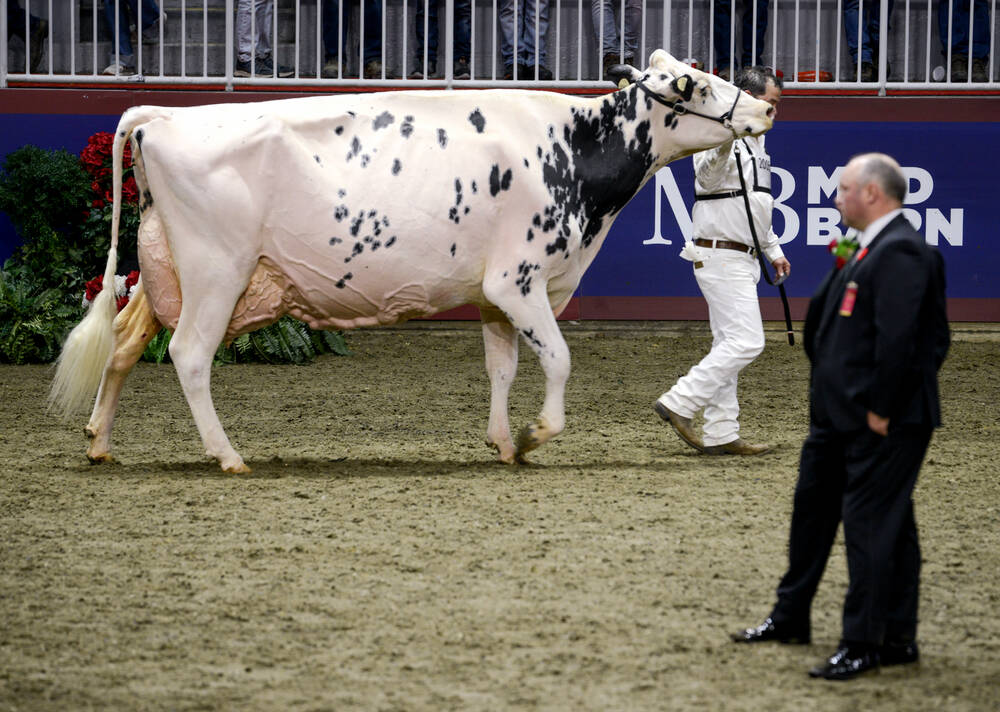Pork council and meat council bring concerns to Ottawa

African swine fever planning, trade access and issues with the temporary foreign worker program topped the list of concerns the Canadian Pork Council and Canadian Meat Council recently put forth to senators and members of Parliament in Ottawa.
Read Also


Shakira’s crown slips, but her genetics don’t lie
Shakira captured the black and white Holstein Longtime Production 70,000 + kg class at the Royal Agricultural Winter Fair but finished as reserve champion in the grand champion competition, relinquishing the crown to Jeffrey-Way Hard Rock Twigs.
Why it matters: ASF and TFW labour issues are potential disruptions to the Canadian agriculture value chain.
Stephen Heckbert, executive director of the pork council, said the group aimed to communicate the possible financial impacts of ASF, to which his group has given plenty of thought.
“In terms of being prepared, we’ve done a lot of work. We’ve had a variety of tables, we’ve had a variety of preparatory exercises.
“When we started talking about this five years ago, it was very much, OK, well, we’ll have to respond this way. But five years later, lots of other places around the world have had ASF. We sort of have now more of a global experience with it, and we have a bit of a better sense about what the reaction from other countries is likely to be.”
Heckbert said he thought the groups successfully presented these concerns to government representatives.
“We recognize this isn’t something you think about every day, but it is something we think about every day, and we want to keep you up to speed about why this keeps us up at night,” was how he described the groups’ pitch to the government.
“The number one goal … is still to keep ASF from ever hitting our shores. That’s the number one thing we can do to make sure that the Canadian industry continues to thrive.”
The groups also discussed issues with labour and the TFW program.
“This conversation is largely to remind folks inside of government … that rural Canada’s requirements here in terms of temporary foreign workers are entirely different than what I would call sort of a more urban climate,” said Heckbert.
“It’s an entirely different sort of set of circumstances than it might be if you were in downtown Mississauga.”
Heckbert acknowledged it can be complicated to address this issue but thought discussions were productive.
“On this one … we had some early successes. We had a lot of assurances from folks in government that, you know, the plan is not to change anything about the agricultural set-asides that they have in terms of these temporary foreign workers.”
The government has provided assurances that the TFW program will continue to benefit producers.
“Getting government to outsource those assurances is, frankly, a victory.”
Heckbert said a united front with the meat council is important.
“This is really born out of the fact that we’ve come together to understand that, particularly around ASF planning, that it’s the whole value chain that has to get involved,” he said.
“It can’t just simply be, well, we as producers will go and talk about one thing, and processors will go and talk about another thing, and sort of, you know, try to get competing attention.
“We’ve got to learn to be much better at agreeing to disagree, but in an agreeable way. And I think the kind of partnership we’re showing with the meat council is the kind of partnership I think, frankly, agriculture is going to have to do more of in the future.”
Source: Farmtario.com

